Ford workers move into a Michigan Central Depot filled with family history, memories
Public tours re-start as Detroit celebrates its past
After years of neglect and decay, Michigan Central Station in Detroit moves beyond its celebrated resurrection to welcome Tuesday the first Ford Motor Co. teams that will begin working as the second tenant of the station’s tower.
This development at the Corktown site at 2001 Fifteenth St., off Michigan Avenue, marks the latest milestone of a multi-million dollar innovation district first envisioned by Bill Ford, chair of the 101-year-old automaker that transformed the Motor City.
Seeing Ford workers move into the iconic building, once the symbol of the city’s hopelessness and now a beacon of hope, is a moment native Detroiters across the country have waited to witness.
An estimated 1,000 Ford employees will work on site by the end of the year, including occupancy at the Book Depository Building next door, The Factory (also on Michigan Avenue in Corktown), and now The Station. The three Ford floors inside Michigan Central — floors 8, 9 and 10 — have the capacity for about 450 state-of-the-art workspaces, Ford spokesman Dan Barbossa said.
The move by Ford workers from Model e and Integrated Services teams on Tuesday, October 8, follows Google's Code Next lab, which moved in this summer. More than 675 employees from 119 companies and startups are now part of what is called a Michigan Central ecosystem, Barbossa said.
“When you’ve got a tangible connection, it’s almost a spiritual connection.”
Michigan Central has also begun new public guided tours, featuring experts from Detroit History Tours who will offer stories about the Beaux Arts building’s restoration and guide visitors through the station’s ground floor, including areas not regularly accessible. The 18-story station, designed by designers who did New York’s Grand Central Terminal, opened in 1913 and closed in 1988. Ford purchased the flooded and crumbling structure in 2018.
It re-opened in June with music by Diana Ross, Eminem, Jack White and Big Sean.
This moment is more than simply office space
For many, moving into Michigan Central is about coming home.
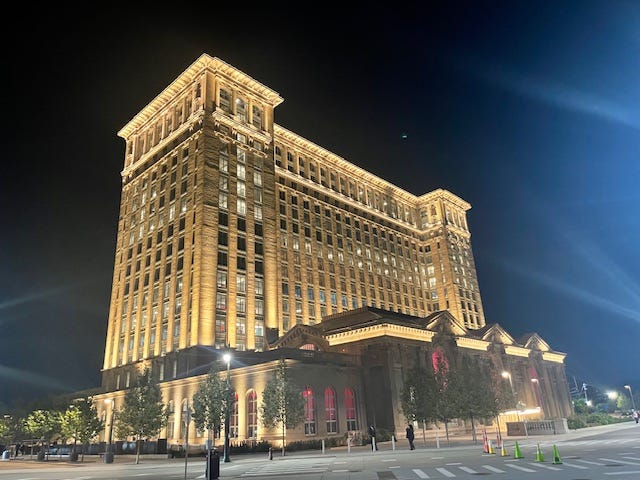
It's a story of memories shared by Ford employees as they focus on the future while looking into hallways that once welcomed their mothers, grandmothers, grandfathers and great-grandfathers.
Several employees met with me and a Detroit Free Press photographer prior to the big move to walk through the building and share pieces of their lives.
Martin Delonis: Being where grandpa worked
Martin Delonis, 44, of Northville, Michigan, is a senior manager of strategy for Model e. His grandfather worked on the seventh floor for the railroad. Martin will be working with the Model e team three floors above where his grandfather worked.
“Part of the beauty of the building is how many people’s histories and their families histories run through this place. Whether they traveled through it, as the gateway into or out of Detroit. Or, for those of us, like me, whose had family members who worked here,” Delonis said. “It’s a literal pillar of what the city meant to us.”
His grandfather, who died in 2017, met his grandmother in law school after World War II, and went to work as a railroad attorney for New York Central in Michigan Central Station in 1952.
‘What it was and what it might become’
“For 26 years, he was in various offices in the train station. In my family, we call it the depot. Watching its decline through my lifetime was something we always did,” Delonis said, looking around the halls.
“I grew up in Ann Arbor but Detroit has been in our blood through my grandparents and my parents. I went to U of D Jesuit (high school), just like my dad. I think what this does, when you’ve got a tangible connection, it’s almost a spiritual connection — to what it was and what it might become.”
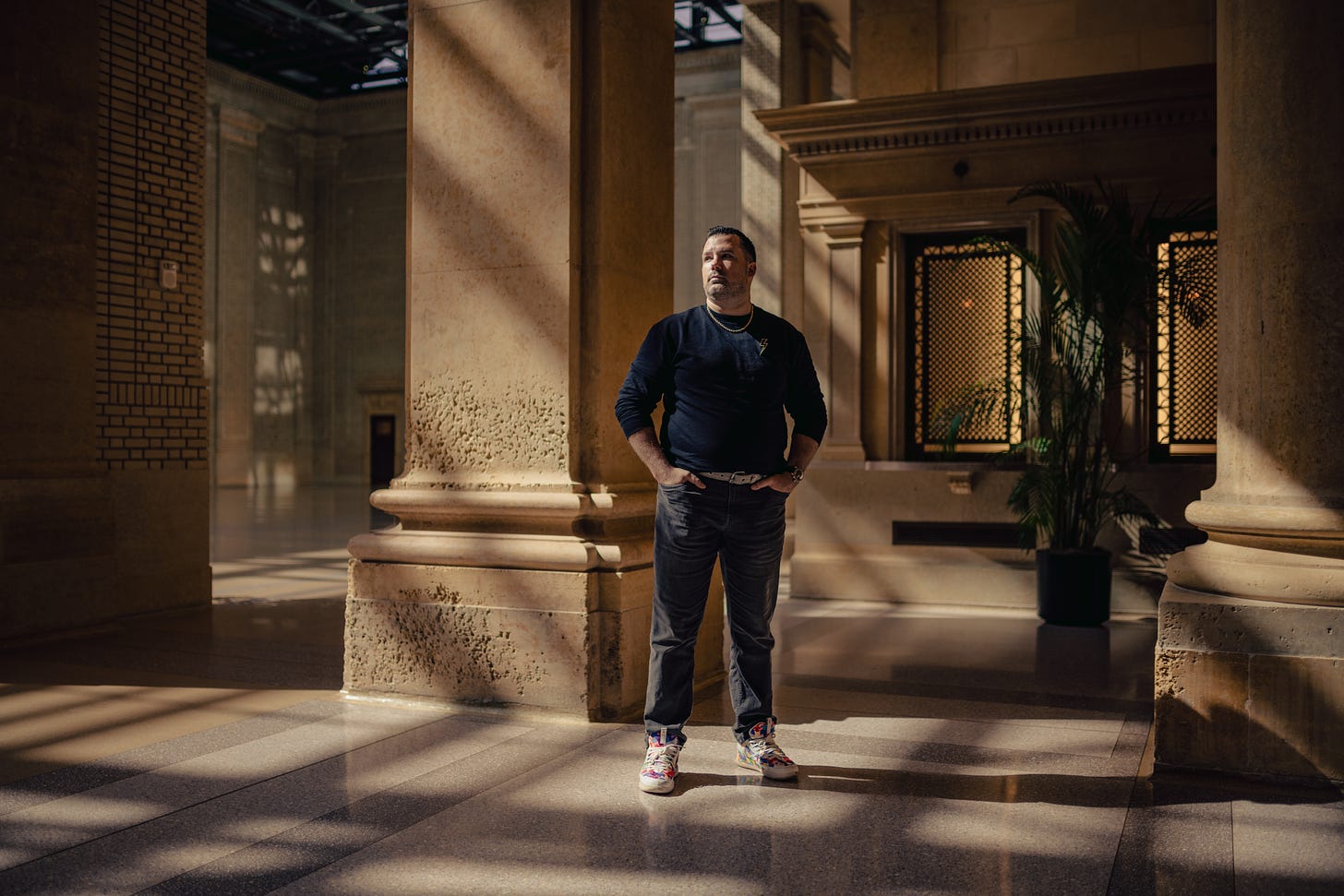
When the announcement went out that Ford was moving workers into Corktown, Delonis never imagined being in the first wave. His “good Irish Catholic” family members would visit the depot and go visit the Gaelic League of Detroit across the street. Now he does strategy for the electric vehicle business, “making complicated things simple for people to solve problems.”
He still has the typewriter his grandfather used when he worked at Michigan Central Station. Now Delonis carries his Ford lapel pin with the cufflinks of his grandfather from New York Central Station.
‘Lives are going to be uplifted … again’
“That to me is the bridge — from 1952 to today,” Delonis said. “I really believe there are pillars in our country upon which everything we’ve done have been built. This building put people in Detroit. This building made life possible. The way that Ford has chosen to revitalize the building has been to put it back to its purpose, which is opening up the world.
“It’s not just a corporate office. It’s an enabler, a facilitator, it’s creative and it’s access. That’s what makes it doubly compelling to be here. It’s not just a pretty building. The things that are going to happen here and lives that are going to able to be uplifted by the space again, that’s the part that gives me goosebumps.”
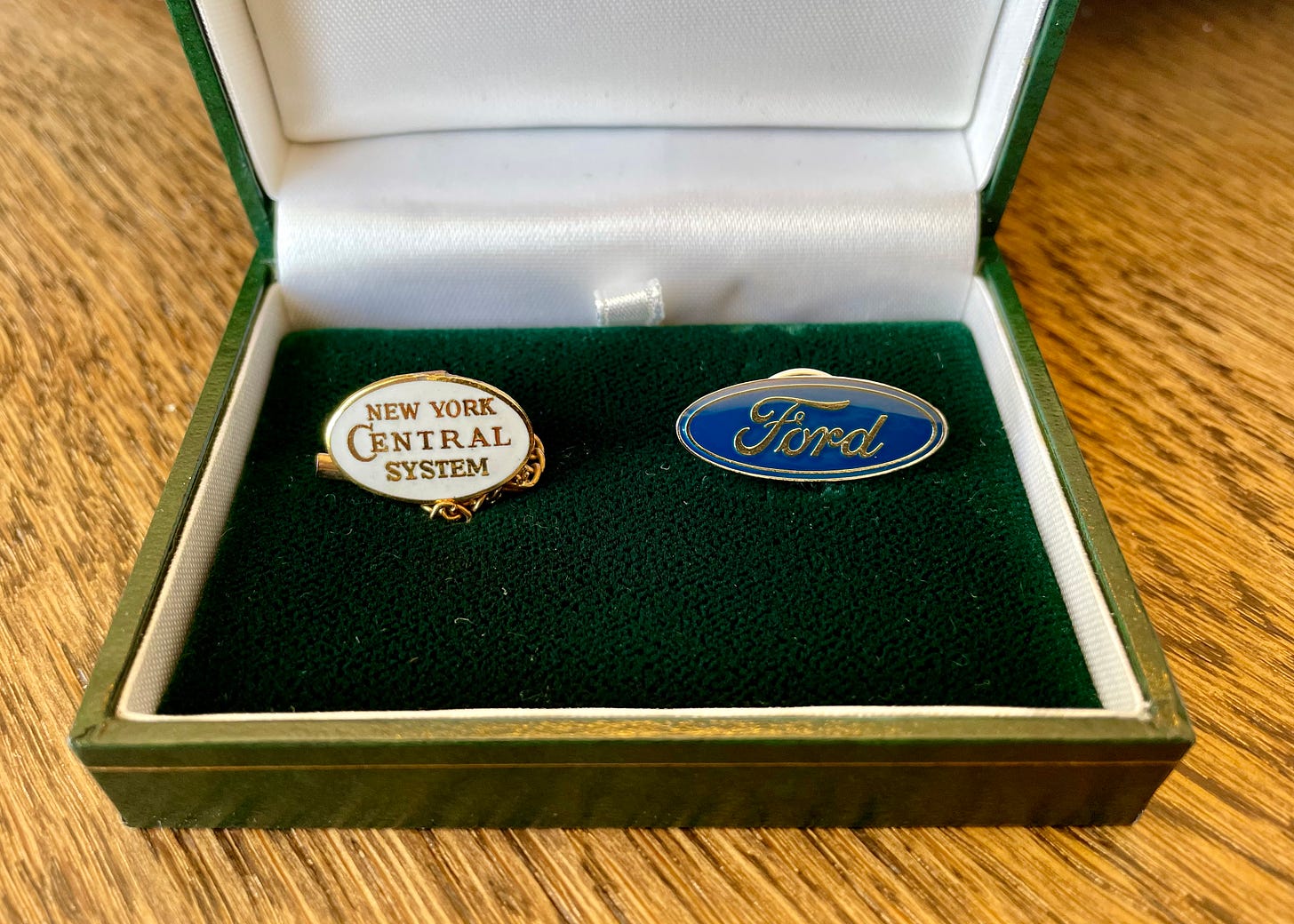
The two spent a lot of time together, as his grandfather passed not too long ago.
“Growing up it was boating, fishing, swimming and laughing together. I think laughing is what we did most. Most memories are on the golf course, neither of us were very good. From my being a teenager on up. We just talked and he could experience life for a second time, with the grandkids ... When I think about him, I think about the laughter.”
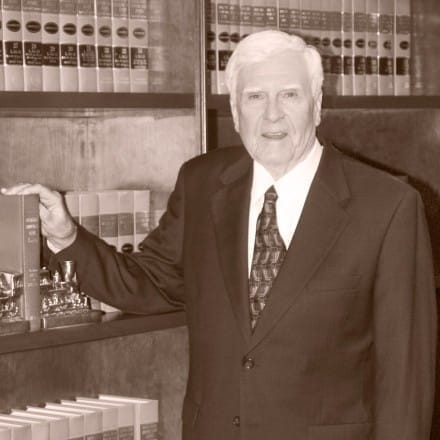
Scott Morton: A family story is a Detroit story
Scott Morton, 50, of New Boston, Michigan, is a senior operations manager in Ford Drive. His mother traveled through the station as a 9-year-old in the 1950s on her way to a new life in Japan. And his wife’s grandfather Russel Tritten worked at the station in the data center, and others in the family worked for the railroad, too.
“They all lived in New York. He worked for New York Central in Utica, New York, then got transferred here in 1964,” said Morton, who still has the adding machine used back then.
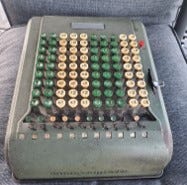
“This is a family story but it’s a Detroit story,” he said, noting that he used to work at The Factory nearby. “Everybody in my family was so excited. They came down for the tours. It’s about the city coming back. I’ve been missing working downtown.”
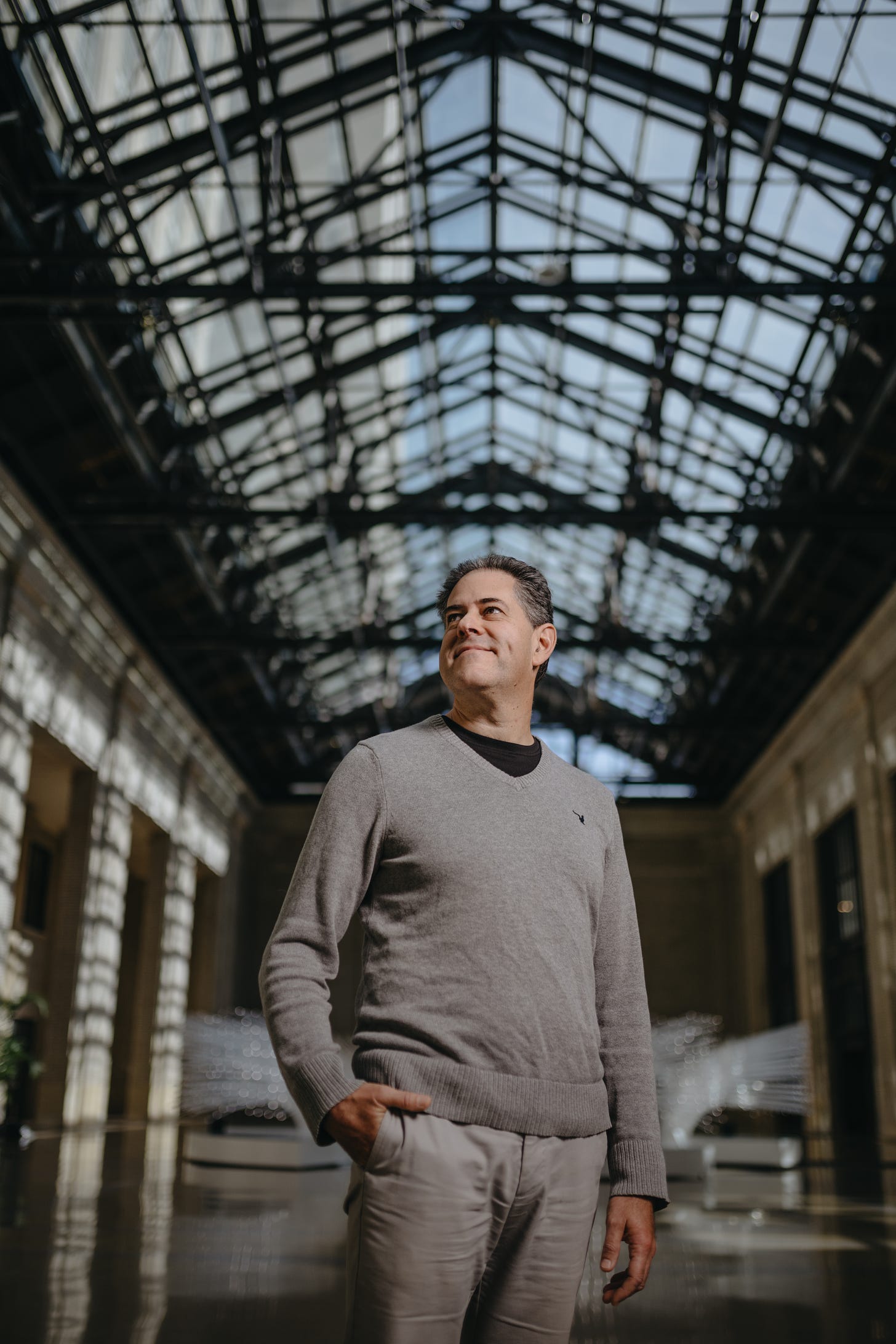
Prior to now, Morton helped create a vehicle subscription business for low-income Detroiters called Elevate. It helps families who need to get to work or the doctor. It’s basically rental with insurance, maintenance. If something goes wrong, there’s a backup, he said.
“We designed that to be a break-even business,” Morton said. “We were incubating new businesses and then often we’d spin them out, and this is one we got to spin out to another non-profit called Feonix Mobility Rising. They’re running it now and they sit in the Book (Depository) next door. They are part of the ecosystem with Newlab. They’re growing it, getting a lot of funding and Ford is supporting them.”
While designing the future, Morton cherishes the past and the story of his mother. He shows a picture of his grandmother with the children. They were moving to Japan to meet up with her dad, who was deployed in the U.S. Army, and the children are wearing their best clothes.
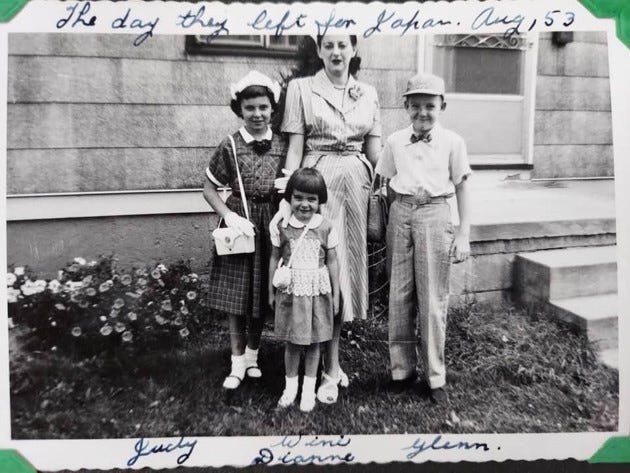
Brian Rockwell: ‘This doesn’t even feel real’
Brian Rockwell, 35, of Northville, is strategy lead for integrated services. His great-grandfather worked in the station's ticket office when it first opened.
“I never met my great-grandfather. He passed way in 1957. I didn’t even grow up in Michigan, though. The odds that he worked here in 1913 and I’ll be working here when it reopens in 2024 is seemingly impossible, right?” said Rockwell, an engineer by training who grew up in Houston and joined Ford in 2020 on the business side.
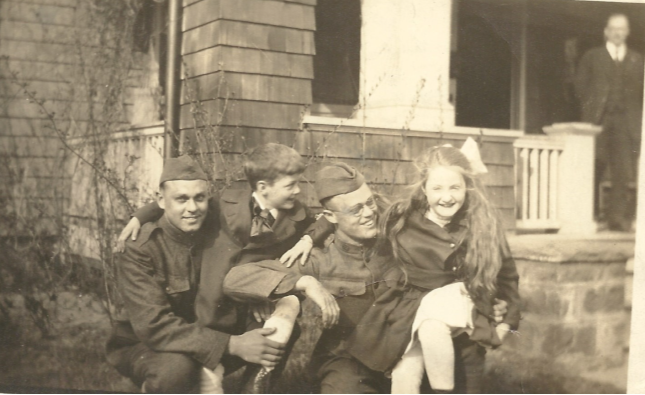
“I only found out about it (the connection) two weeks ago,” he said. “My aunt is our family historian and I had a little get-together to go visit my grandmother in East Lansing. My aunt, Jeffra Rockwell, who lives in Ann Arbor, told me for the first time that Milo worked here. I had absolutely no idea.”
It all seems impossible, Rockwell said. “It makes me feel like a part of history. There is nothing this old in Houston. It was all built after World War II. This doesn’t even feel real.”
His grandmother, Margaret Rockwell, is in hospice care now, and why the family gathered and how Rockwell found out about this connection. “Why would it come up? My aunt has so much family history. I don’t know. It never came up until I, myself, was moving to the train station.”
Witnessing the city come alive slowly
Before coming to Ford, Rockwell worked as an engineer for a competitor in Auburn Hills, Michigan, in 2013. The past 10 years in Detroit have been pivotal to witness, and so powerful, watching every little detail unfold, he said.
“That was sort of the beginning of the rebirth of the city,” Rockwell said. “I moved from California where I had met my wife, but we weren’t married yet. She came out afterwards to do an interview with a law firm in Detroit, right downtown on Campus Martius. She’s like, ‘I’ll get there early, I’ll have some time and get some coffee and relax before my interview.’ And she showed up and there was no where to get coffee in fall of 2013.”
But things didn’t remain stagnant. It was only the beginning.
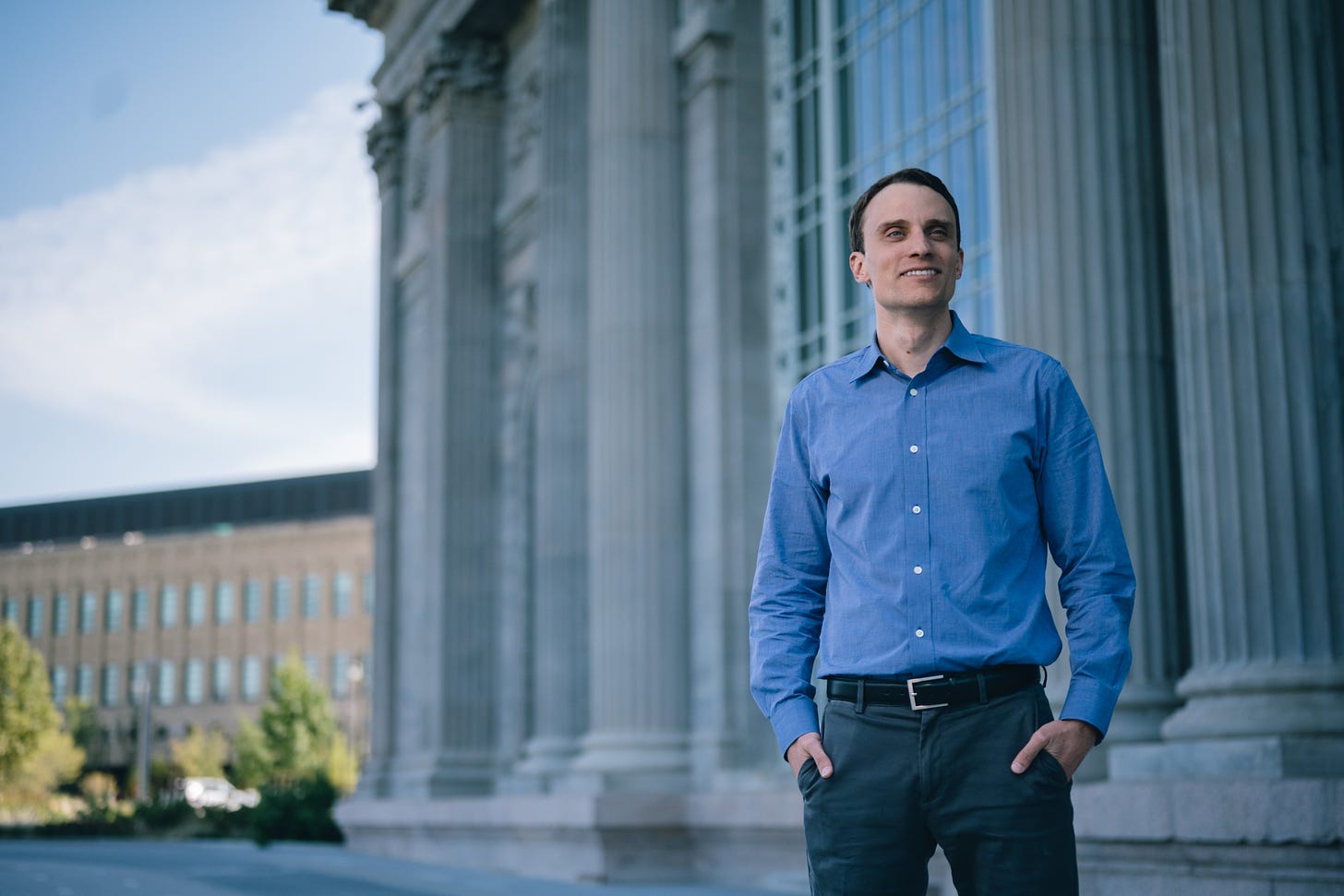
“Then when she came back and started the next summer, there was a coffee shop in the lobby of her building and directly across the street. I feel like that’s been the pace of the city for the past 10 years,” Rockwell said. “Now I get to be part of that, by moving into Michigan Central.”
More: Ex-Detroit Lion creates $250M company after getting advice from Bill Ford
Note: Phoebe Wall Howard covered the purchase, renovation, restoration and re-opening of Michigan Central Station over nearly seven years for The Detroit Free Press. Her family presence in Corktown started in the 1860s or so, as painters, upholsterers, sausage makers and a boarding house operator who helped build our great city.
As a former reporter at The Des Moines Register and lecturer at the annual Okoboji Writers Retreat in Iowa, Phoebe Wall Howard is part of the Iowa Writers Collaborative. Check it out.




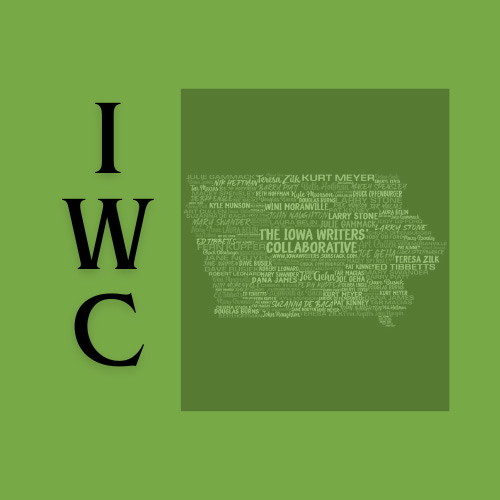
Great information on SO many levels Phoebe. Thank you for such great research, work and time! JL